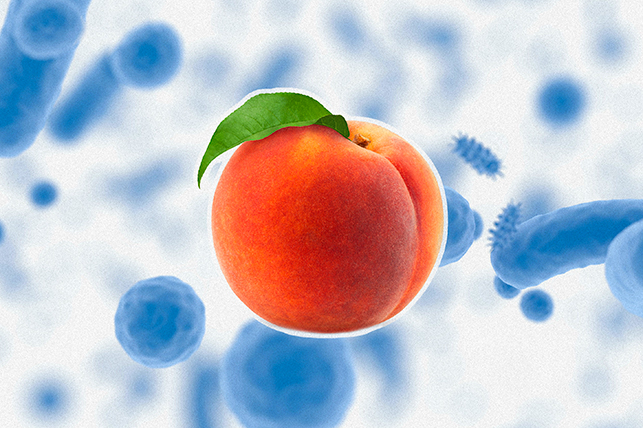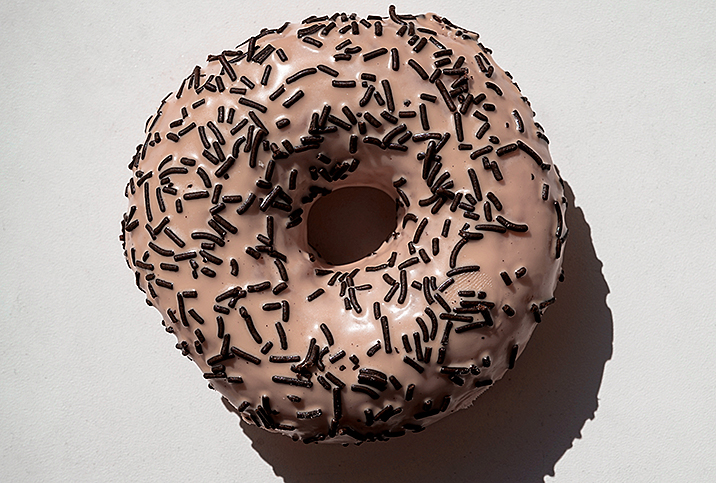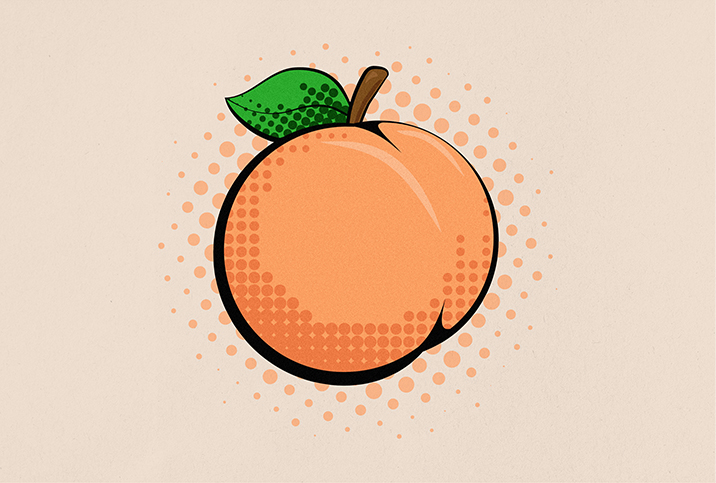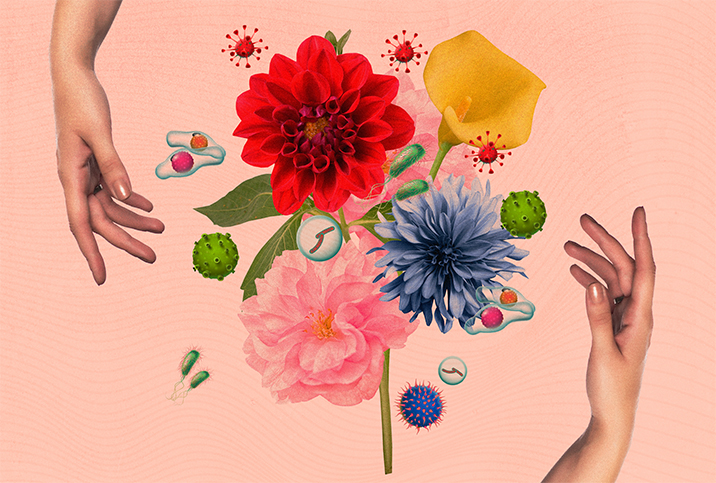What Should You Know About the Anal Microbiome (And Anal Bacteria)?

With nearly 3 billion tags on TikTok, #guthealth is undoubtedly one of the wellness industry's hottest trends. To be sure, the gut microbiome—a trillions-strong community of mostly beneficial bacteria—is crucial for overall well-being, playing a role in everything from disease resistance to cognitive function and emotional health.
However, its lesser-known counterpart, the anal microbiome, deserves attention, too—especially for people who engage in peach play.
"The anal microbiome is a group of good and bad bacteria that live harmoniously in your anal canal and rectum," said Evan Goldstein, D.O., a New York City-based sexual health and wellness expert, anal surgeon and co-founder of Future Method, a sexual healthcare platform. "Believe it or not, maintaining this equilibrium is essential and helps anal sex be safer and more comfortable."
How are the bacteria in the anal microbiome different from the gut microbiome?
Most of the microbes in the gut microbiome are located within the large intestine. The anal microbiome, scientifically known as the rectal microbiome, is located below the large intestine at the end of the gastrointestinal tract. Like the gut microbiome, the anal microbiome also supports digestion and helps fend off infections, but the two are very distinct.
Jessica Wells, Ph.D., R.N., an assistant professor at the Nell Hodgson Woodruff School of Nursing at Emory University in Atlanta, was a lead researcher in a 2022 study investigating the anal microbiomes of HIV-positive and high-risk HIV-negative women.
She explained that certain infections, such as HIV and hepatitis, are known to impact the gut microbiome through systemic inflammation. However, she and her colleagues found no such impact of HIV on the anal microbiome, supporting the notion that the two bacterial communities are independent.
"Due to proximity and interaction of the gut microbiome with the anal canal via stool, many may assume there may not be a distinct microbiome of the anal canal," she said. "Our study shows many similarities of the anal microbiome with the gut microbiome, but also differences exist which may be interesting to explore in larger studies."
What can happen if the anal microbiome is disrupted?
Goldstein explained that when the bacteria within the anal microbiome are thrown off-kilter, the anal lining can become more vulnerable to damage, which could lead to complications such as an increased risk of sexually transmitted diseases and infections (STDs/STIs), including HPV and herpes, as well as the HIV virus, abscesses, irritation, and anal tears and fissures.
Sam Westreich, Ph.D., a microbiome scientist at DNAnexus in Mountain View, California, added that some studies indicate an association between frequent anal sex and increased susceptibility to certain STIs. He said more research is needed to understand the link, but the reason may be that certain microbes agitate the immune system more than others.
Bodily microbiomes are closely linked with the immune system in everyone, Westreich explained, and the immune system uses the microbiome as a kind of "training ground" to understand what microbes are present. When the system functions as it should, the immune system responds appropriately to various microbes. But when it's not, it may go into overdrive and attack benign microbes.
"The microbiome and immune system always have some talking going back and forth between them," he said. "But it seems like for people who regularly engage in anal sex, the microbes seem to stimulate the immune system a bit more, which may make it overreact to certain STIs or certain conditions that can affect it or may make it either more protective or more vulnerable to conditions like HIV."
Some research suggests an association between the presence of specific microbes and a higher likelihood of colorectal cancer, though scientists have yet to identify the causality.
"One of the big challenges in the microbiome world is trying to figure out whether microbes are present in an environment because of a disease or if their presence in that environment is causing the disease," Westreich explained. "One of the things that we do know is the microbiome changes from practically any change that you make, which makes it very hard to figure out if there's a microbe that's causing a certain condition."
What affects anus bacteria?
What affects the microbiome? In short, just about anything, according to Goldstein and Westreich. Like the vaginal microbiome, the anal microbiome is highly sensitive, and various elements, from not washing properly to the friction of penetration, can alter the presence of good bacteria in the anus.
"Everything from an irritating soap to harboring excess moisture in between your cheeks to not showering after exercise or before bed [affects it]. A lot of our pre-sex routines, as well as the products we use during sex and in our everyday lives, can also affect the anal microbiome," Goldstein said.
"This includes your diet, penetration itself, the type of condoms and lube you use, wet wipes, and how you douche—if you do—before anal sex. Wet wipes do a great job of getting rid of lingering fecal matter, but they also wipe away the good bacteria, too, which your body needs to function properly, not to mention they cause unnecessary irritation and can even activate HPV and herpes," he added.
"Most water-based lubes, as well as douching with water or store-bought enemas, also affect the anal microbiome because they are often hyper- or hypo-osmolar," Goldstein continued. "If a water-based lubricant is hypo-osmolar, it can cause the cells within the rectum—and vagina—to swell, and if it is hyper-osmolar, it can dehydrate the cells. The same applies to douching with water and store-bought enemas."
You may be affecting the good bacteria in your anus without realizing it.
How does your diet affect the biome of your anus?
Diet's influence shouldn't be discounted either, Westreich noted. He explained the anal microbiome gets nourishment primarily from leftover food molecules once the gut microbes have had their fill. The rectal microbes change based on what food passes through and what microbes are present in the intestines, and some foods have more influence than others.
He said fiber is one of the primary drivers of change in the microbiome, and a mix of soluble and insoluble fiber can help keep the microbiome healthy. On the flip side, certain preservatives and additives may prove detrimental.
"Studies have shown that a lot of the myriad highly processed foods contain additives like sorbitol, fake sugars, emulsifiers—which are used to make a lot of food shelf-stable—and hydrogenated fats," Westreich said. "Those have a really big impact on both the gut microbiome, but then all of that is going to trickle down and affect the anal microbiome as well."
One of the more considerable risks to the microbiome—and your overall well-being—comes from anal tearing, Westreich said. Tears allow microbes to jump from their usual environment into the bloodstream, where they may activate the immune system. If this happens a lot, it could increase the risk of immune-triggered bowel disease, such as ulcerative colitis. He noted that such conditions aren't fully understood, but it appears the immune system becomes overactive because microbes in the gut or anus repeatedly set it off.
How can you maintain a healthy microbiome?
To take care of your tush and the microbiota that call it home, Westreich explained that broad-scale changes intended to improve your overall health are likely to have more impact than solutions focused solely on the microbiome. These can include eating a healthy diet, as mentioned, and ensuring safe, comfortable stimulation that inflicts little or no damage to the area.
Using a silicone lube or an iso-osmolar, water-based product can help with the latter, Goldstein noted, clarifying that silicone has superior lubricity and slickness. He also suggested ditching the wet wipes, investing in a bidet, and using an isotonic and iso-osmolar douche.
As Westreich mentioned, getting sufficient fiber is another crucial component.
"Fiber helps do the bulk of the 'prep' work before anal play—no pun intended—by encouraging complete and easy bowel movements," he said.
Eating fermented foods, minimizing alcohol intake and consuming mostly whole, plant-based foods can also enhance the gut—and butt—microbiomes.
According to Goldstein, probiotics and prebiotics may help, too, but only if they're designed to be inserted directly into the rectum. Oral capsules made to enhance the gut microbiome are unlikely to have much effect on the anal microbiome because the bacteria cannot survive stomach acid.


















